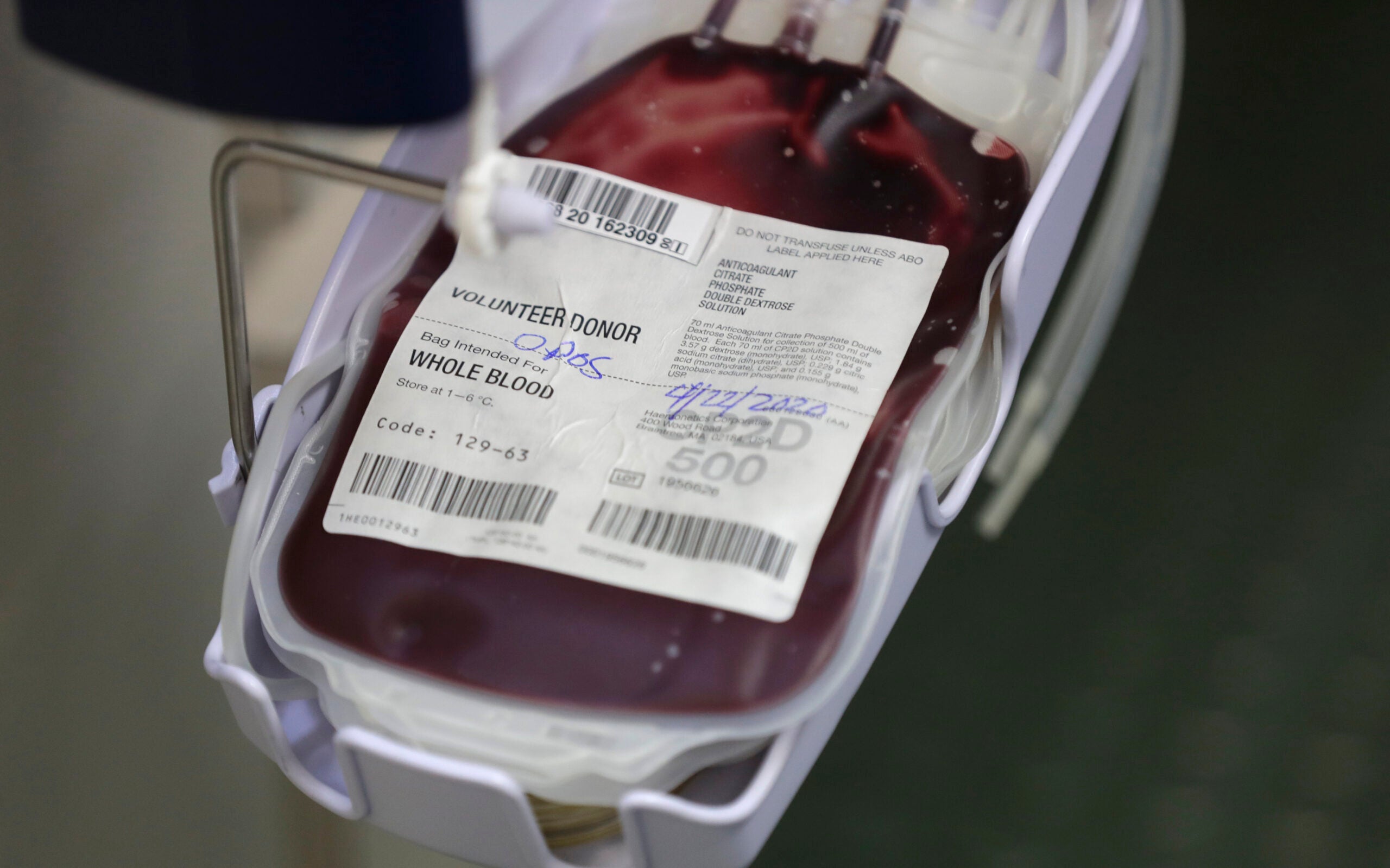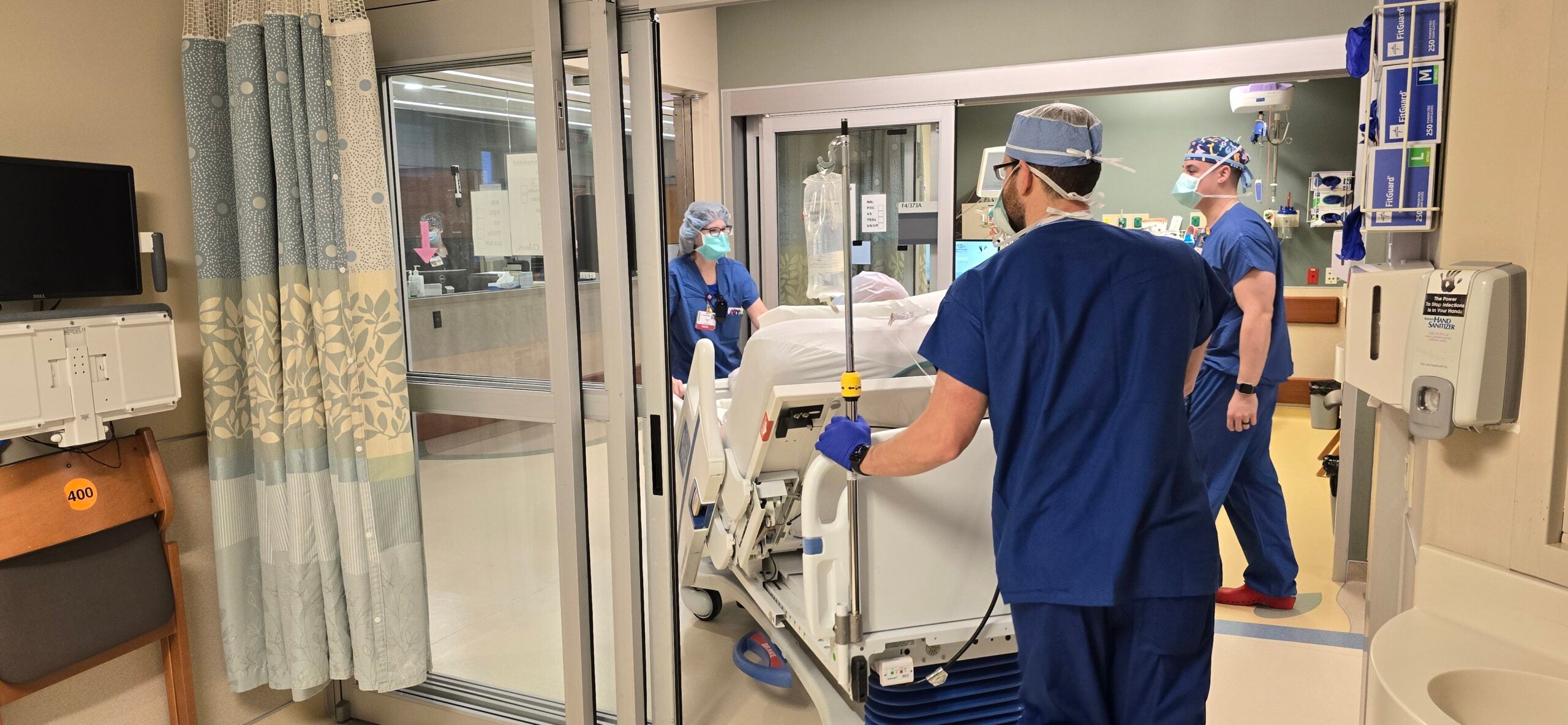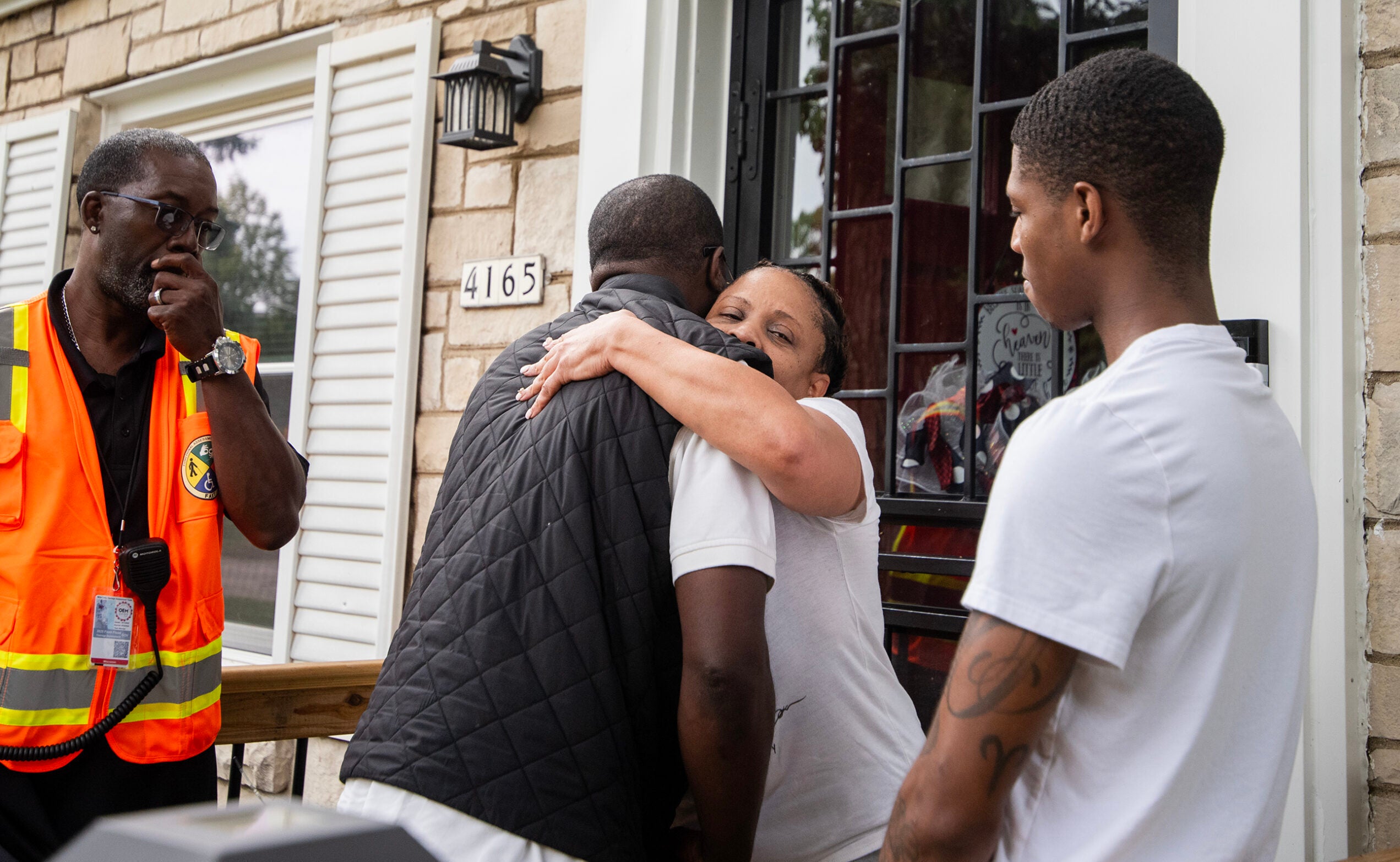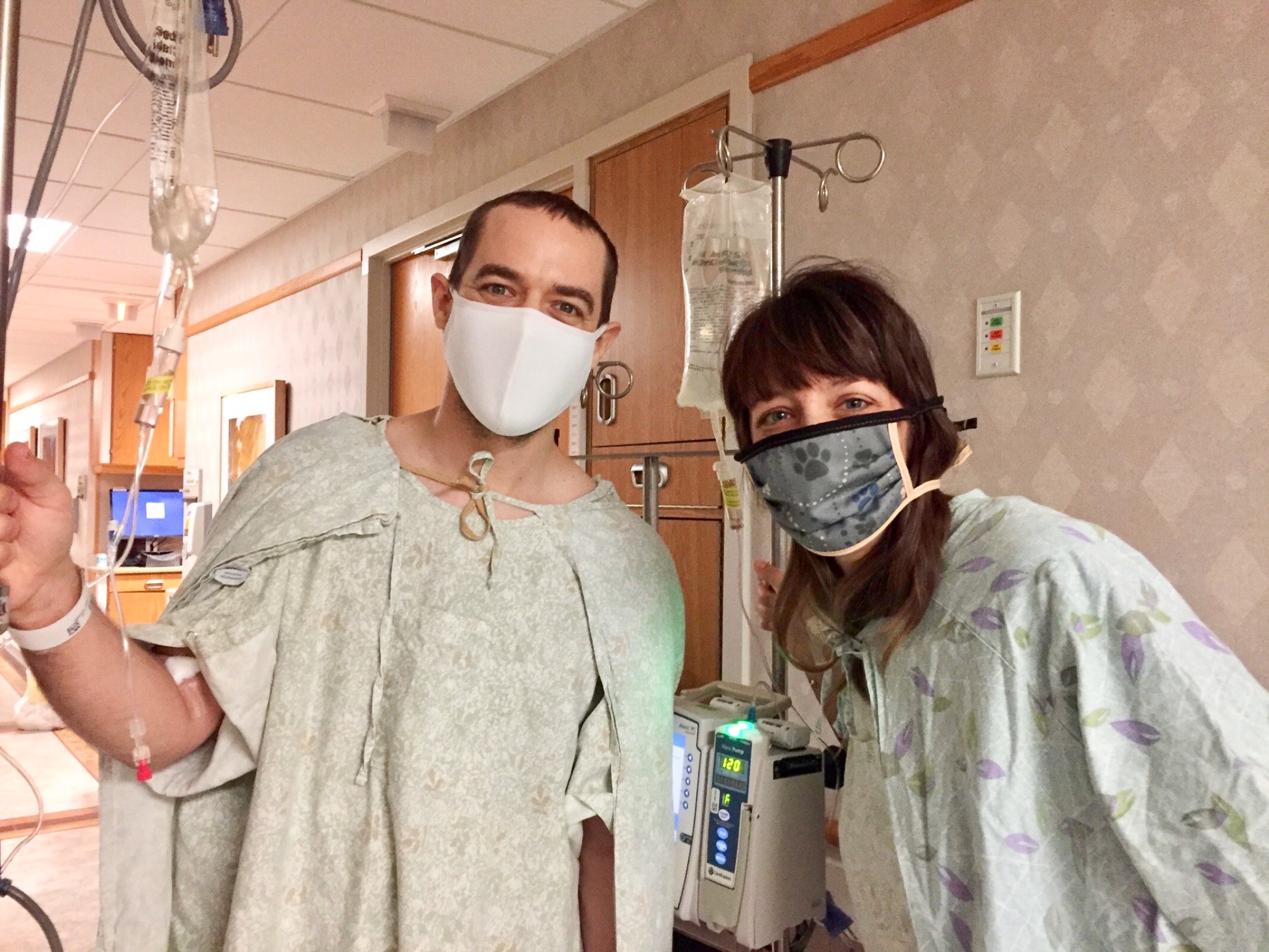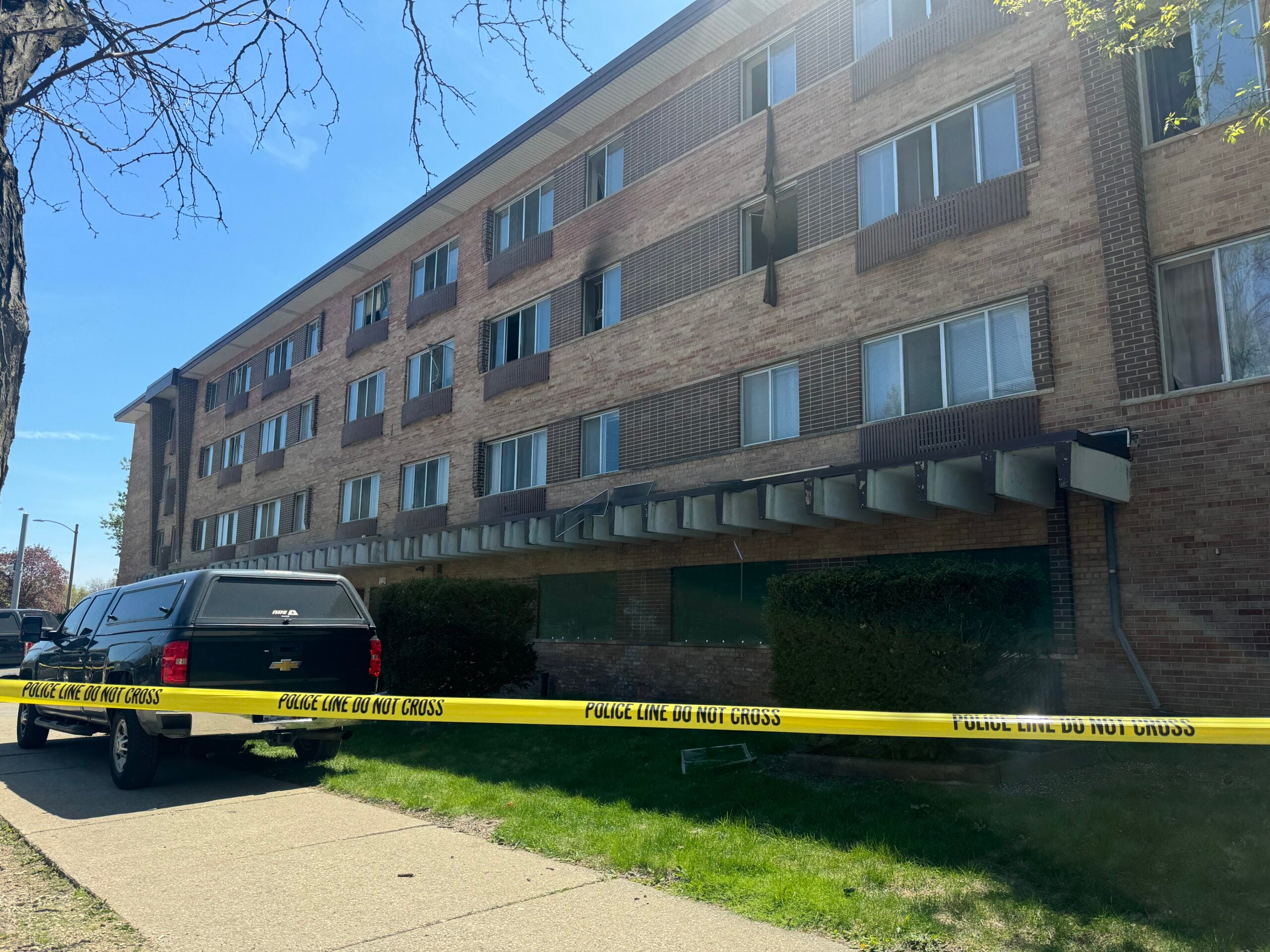As Wisconsin hospitals battle record-setting surges in COVID-19 hospitalizations, they are simultaneously contending with yet another crisis: a shortage of blood.
America’s Blood Centers, the American Red Cross and the Association for the Advancement of Blood and Biotherapies released a joint statement last week calling attention to the nation’s “dangerously low” blood supply and urging people to donate.
Dr. Angela Treml is the medical director of transfusion medicine at Versiti Blood Centers in Wisconsin. She said this shortage is unlike anything she has seen in her career.
News with a little more humanity
WPR’s “Wisconsin Today” newsletter keeps you connected to the state you love without feeling overwhelmed. No paywall. No agenda. No corporate filter.
“We typically like to have a several days supply, ideally four- to five-days supply of red cells and blood on our shelf. And currently, we often have less than one day. We’re lucky if we have a two-day supply,” said Treml.
Justin Kern, communications director for the American Red Cross of Wisconsin, said COVID-19 has significantly impacted donor turnout. Fewer people are making appointments to donate, or they are canceling appointments because of COVID-19 symptoms or exposure.
Last week, Kern said 60 percent of their blood donation appointments in Wisconsin went unfilled.
“That has us quite concerned,” said Kern.
Blood shortages were a major challenge early in the pandemic, when stay-at-home orders were in place and we knew less about how the virus was spread. But as vaccines became available and things reopened, Kern said blood donations started to rebound.
At the same time, elective surgeries that had been postponed were finally being performed. And as people emerged from their COVID-19 cocoons, Kern said cities like Madison and Milwaukee saw spikes in car accidents and violent crimes. Because blood banks hadn’t fully recovered, this resulted in more blood shortages this past summer.
And the omicron variant only made things worse.
“Fall is usually the time when we kind of replenish, restock the blood supply — and everywhere saw a lower turnout in terms of appointments,” said Kern.
With many businesses still in work-from-home mode, Kern said there was a decline in employer and school-sponsored blood drives, which are usually a major source of donations.
Kern said it’s not unusual to see a dip in appointments over the holidays as winter weather sets in. But several bad donation seasons in a row has led to the current crisis, which Kern emphasized is not a stretch of the term.
With such low supplies of blood, hospitals may soon have to start triaging trauma patients or delaying critical procedures like surgery and chemotherapy.
“We don’t want hospital partners to have to make those decisions,” said Kern.
But Treml said these are decisions that doctors in other states are already having to make.
Thanks to fixed donation sites run by organizations like Versiti and the American Red Cross, Kern said Wisconsin is faring slightly better than the rest of the nation.
But scraping by on a day’s supply isn’t enough. With testing and labeling, Treml said it takes about two to three days for donated blood to be ready for use. Without an adequate supply of blood, Treml said hospitals are not prepared to handle emergencies that arise.
“That is what makes all of us very nervous is those traumas that come in that can use just a handful of units or could go through 10s of units — 50, 60 units at a time,” said Treml. And unlike scheduled surgeries, disasters and traumatic situations are unpredictable.
Both Treml and Kern stressed that the best way to help is by donating blood.
Whether you’re a first-time donor or a repeat customer, Kern said donating blood makes a great New Year’s resolution, especially with January being National Blood Donor Month.
“It really is something where in about an hour, you can do something where you are really helping to address a community health need,” said Kern.
You do not need to be vaccinated against COVID-19 to donate blood. If you are vaccinated, Kern said donors should know the name of their vaccine’s manufacturer when they come to donate.
If you have recently tested positive for COVID-19, have been exposed to someone with COVID-19, or if you have symptoms, Kern said to wait 14 days to donate.
“I promise that in a few weeks, when you’re feeling better, that donation will still make a humongous impact toward this need,” said Kern.
To find your nearest blood collection site and to schedule an appointment, contact one of the following organizations:
- AABB: www.aabb.org; +1.301.907.6977
- America’s Blood Centers: www.americasblood.org; +1.202.393.5725
- American Red Cross: www.RedCrossBlood.org; +1.800.RED CROSS (+1.800.733.2767)
- Versiti Blood Center of Wisconsin: www.versiti.org/ways-to-give/our-communities/wisconsin
Wisconsin Public Radio, © Copyright 2025, Board of Regents of the University of Wisconsin System and Wisconsin Educational Communications Board.

